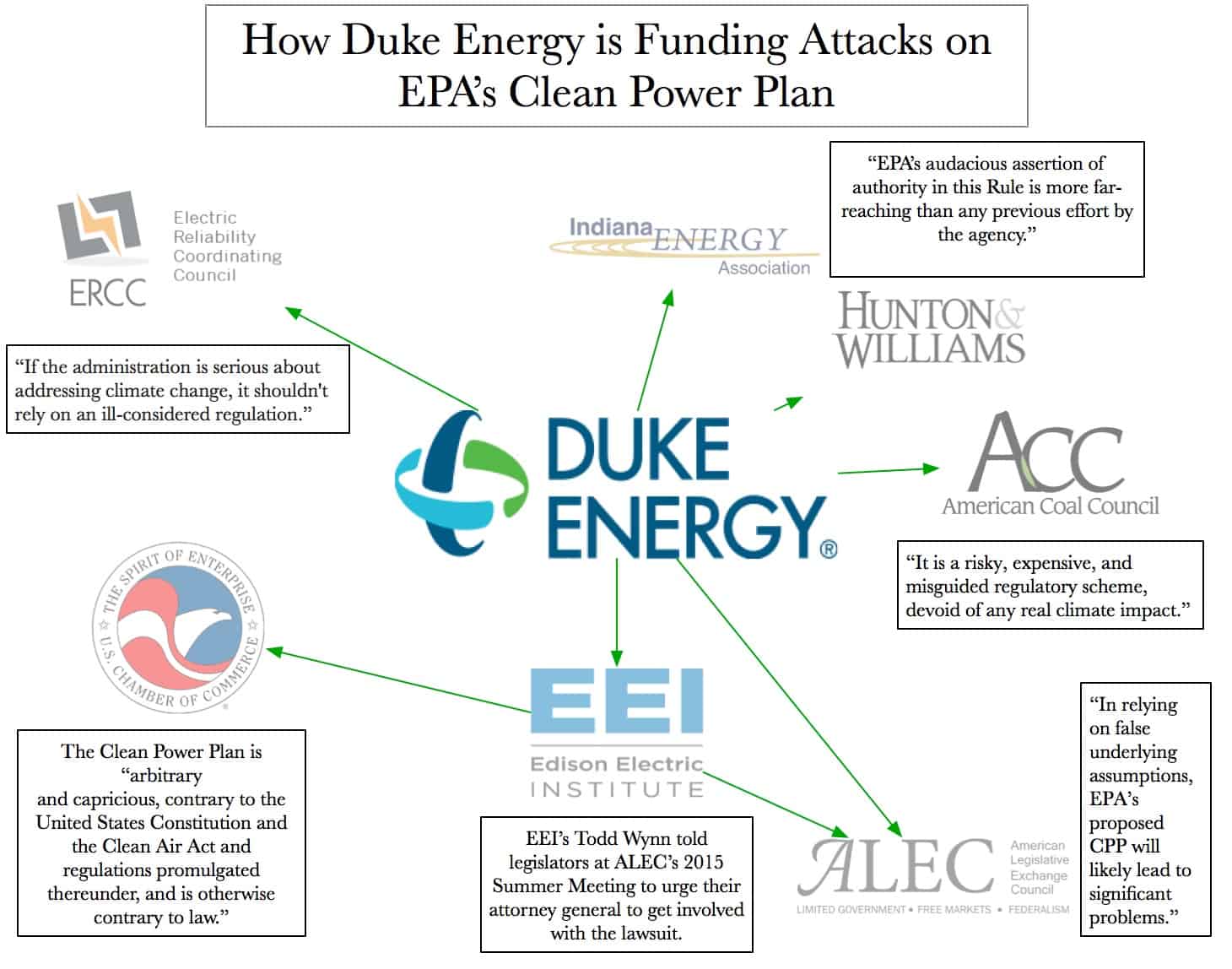On May 5, Duke Energy shareholders voted 71% against a proposed resolution asking for the company to disclose direct and indirect lobbying activities and expenditures, along with membership payments to any tax-exempt organization. The Board of Directors for Duke Energy had recommended a vote against the proposal telling shareholders it believes that “the additional report requested in the proposal would result in an unnecessary and unproductive use of the Corporation’s resources.”
The resolution came from the Benedictine Sisters of Virginia, owner of 1500 shares, and the Sisters of Mercy in St. Louis, owner of 45 shares. The nuns said a full disclosure of activities and expenditures will help investors assess whether or not the company’s lobbying is consistent with its expressed goals and in the best interests of shareholders.
The resolution specifically noted the American Legislative Exchange Council (ALEC) and Duke Energy’s role within the organization.
ALEC has been brought up as evidence in the investigation of ExxonMobil’s deception to shareholders concerning climate change and the burning of fossil fuels.
Additionally, according to the Center for Media and Democracy’s PR Watch, “State legislators at recent ALEC conferences have been instructed to engage in ‘guerrilla warfare’ against the EPA, and to bring about a ‘political tsunami’ to block pollution controls.” Plus, at a private meeting with lobbyists and legislators during the ALEC 2015 annual meeting, the Washington Post reported that Edison Electric Institute’s Todd Wynn, “advised states not to boycott the [Clean Power Plan] entirely, as McConnell urged state governments to do in a letter to all 50 governors this year. ‘Putting something in the books so they can continue with the litigation strategy . . . is the right direction,’ Wynn said.” Lynn Good, chairman, president and CEO of Duke Energy, is a member of Edison Electric Institute’s executive committee.
ALEC has also been an organization used over recent years for utility companies and the Edison Electric Institute to implement their strategies to limit the growth of solar energy on rooftops, repeal state renewable energy standards, and obstruct federal ozone air quality standards.
Yet, during the annual meeting, Lynn Good boasted that the company had decreased carbon emissions by 28 percent since 2005 and that North Carolina now ranks third in the nation in solar energy. Unsurprisingly, Lynn Good neglected to mention that those accomplishments are in large part due to EPA regulations and North Carolina’s Renewable Energy and Energy Efficiency Portfolio Standard.
However, ALEC is just one part of Duke Energy’s lobbying and advocacy strategy. As it relates to the Clean Power Plan, Duke Energy is providing resources to many different entities involved in the attacks and lawsuits. The company is an active member of Hunton & Williams’ Utility Air Regulatory Group, the Indiana Energy Association, American Coal Council, Bracewell Giuliani’s Electric Reliability Coordinating Council, and the Edison Electric Institute. The infographic below shows Duke Energy’s relationship with all of these groups.

